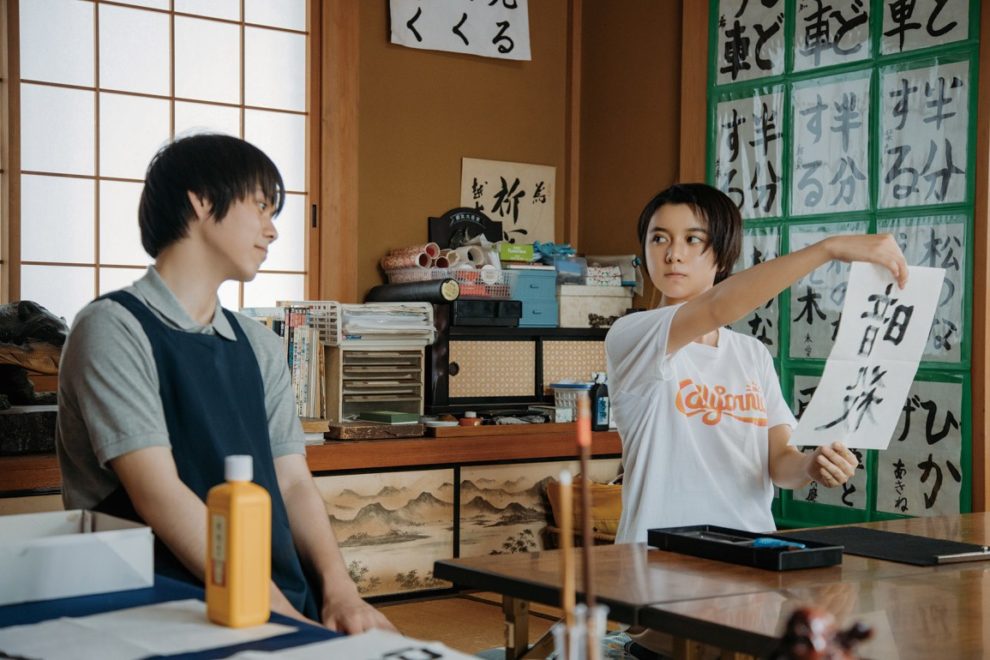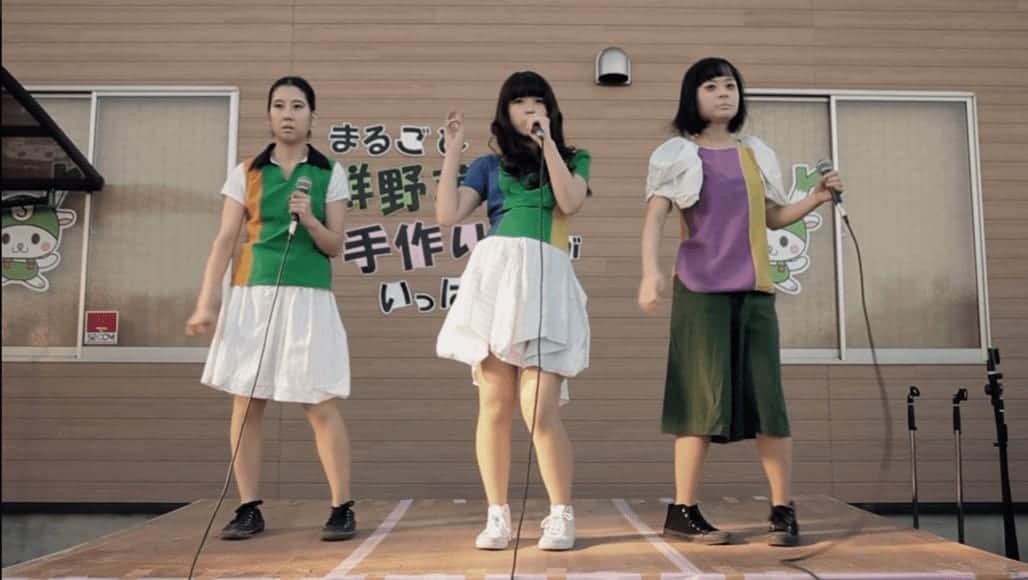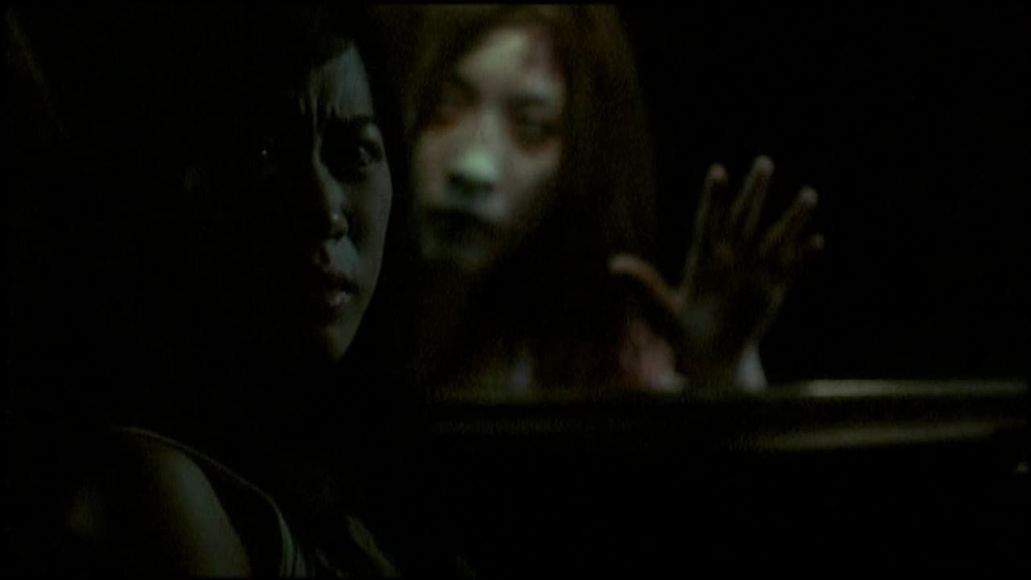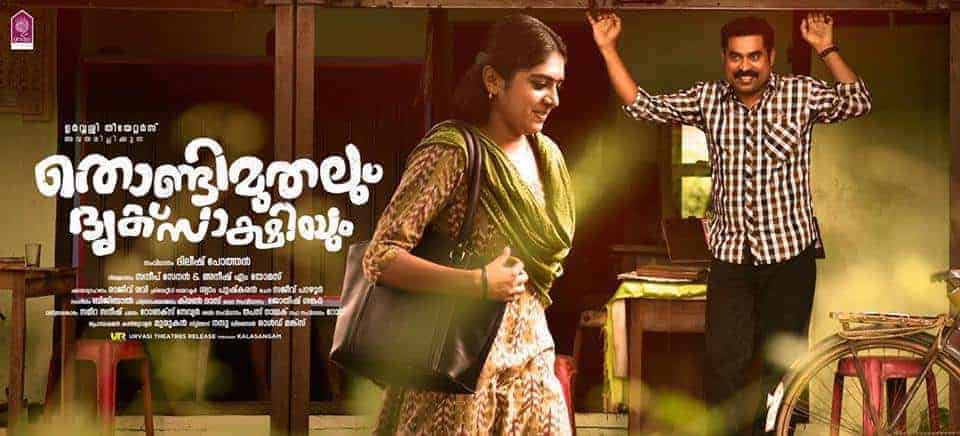It is amusing to ponder just how stealthily life can imitate art and vice versa, happening right underneath our noses we are blind to its reflection whilst all those around us have grabbed a front row seat just to watch how it unfolds with popcorn in one hand and a beverage in the other. A stark reminder of how blurred the line between fiction and real life can be, one serving as a harbinger for the other, these encounters usually fall into two categories: a devastating disaster of which no one can avert their eyes from, or a heart-warming glimpse into the fairy-tale world we all wish our lives could be. Thankfully for Shuichi Okita's latest offering, “One Summer Story”, its loveable cast of misfits practically living out their common ground – a tender anime about a magical plasterer – steers its story into the latter and, for the most part, wins the hearts and minds of those who lucky enough to see it.
A daydreaming teenager obsessed with Buffalo Koteko, Minami (Moka Kamishiraishi) lives pleasantly with her carefree family and a stepdad who shares her love of anime. One day, during swimming practice, she spots calligraphy enthusiast Moji Shuhei (Kanato Hosoda) on a rooftop painting a portrait of the titular character of her favourite show; before long they have established an unbreakable friendship based almost solely on quotes and references. When she visits his house, she comes across a stack of talismans identical to one her father (Etsushi Toyokawa) sent her one birthday, talismans which Moji's family had designed for a religious cult. Triggering off her desire to find her father, Moji takes Minami to his “private investigator” brother Aki (Yudai Chiba), who tracks him down as the leader of the cult. After hearing this, Minami misses her swimming camp to get to know the dad who has been absent throughout most of her life.
What could easily have been another run-of-the-mill family drama where a quirky child reconnects with a long-lost parent and touches the lives of those around her (which, invariably, Minami does succeed in) is sent on a stellar trajectory thanks to Okita's extraordinary eye for framing minute joys as centre of attention and his casts overflowing incandescence on screen. Kamishiraishi, Hosoda, and Chiba erupt with colourful personality, tapping into the vulnerabilities and intricate traits pumping through their arteries and veins; with every wisecrack and comic rebuttal (of which there are plenty) there is a perfect complimentary facial retort: a smirk, a look of utter confusion, or total bedazzlement. Watching Minami and Moji's friendship grow as they endeavour to track her father down makes for one of the most heartfelt hours on screen for some time – cute without ever being saccharine, endearing without being overbearing – as if this is the true focus the story wants you to tightly grip.
Alas this is not the case, and the aloofness of this arc tapers into end result of Aki and Minami's venture for her father. Here there is a searing emptiness, true to how such a meeting would take place, but her injection into her father's life is incredibly jolting to not just the pace but the film's overall flow. Sure enough, the swimming lessons she provides him and his niece are ripe for comedy (as are his “psychic” teachings) but these brief moments of realignment do not last long, and the end result of this venture plunge into predictability; just as before, it is the growing bonds between father and daughter which keeps the audience firmly transfixed on what is unfurling before them. Kamishiraishi and Toyokawa's estranged chemistry is solid, and both are a riot to watch trying to find that common ground which links them, but ultimately there is a deep-seated desire to see their narrative mixed more fluidly with Minami's humble beginnings, especially as her favourite show foreshadows this precise moment.
That being said, Okita successfully injects himself into the teen drama, unfurling a film centred on relationships finding our true selves with a distinctive playfulness overflowing with whimsy, especially as far as Kensuke Ushio's score is concerned. Here, an eccentric take on Habenero weaves itself into the narrative, cementing the largely high-spirited tone of this vivid film into its bedrock. The inclusion of long stationary establishing shots in each family room provides us with a non-invasive opportunity to see how this universe works, and though it is far from unique it is a quintessential part of any Okita film – a pseudo-psychogeographical examination of the family unit in the home. These shots are few and far between but ultimately elevate the movie higher than its plethora of peers and predecessors.
Adapted from Retto Tajima's manga “Kodomo wa Wakatte Agenai”, the adorkable charm emanating from the film's young leads is so authentic, so enthralling, you cannot help but fall in love with their story. Okita's film may be a little stylistically haphazard and does lose itself as it formulaically trips into the second act, but the strong cast pulls out all the tricks in their multifaceted toolboxes, making this a real gleeful watch. Kamishiraishi, a starlet in the making, is a dynamic and polished gem to watch and an utter delight in bringing her character to life, making her beyond perfect for the role. She not so much takes us by the hand as she does completely turn our two hours on its head, and as Minami's life imitates that of Buffalo Koteko's our hearts are firmly fixated on how one summer could provide so much wonder.
















